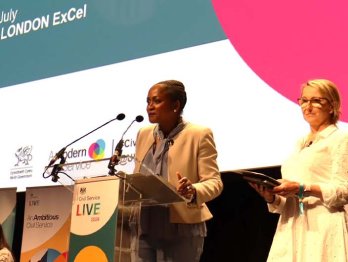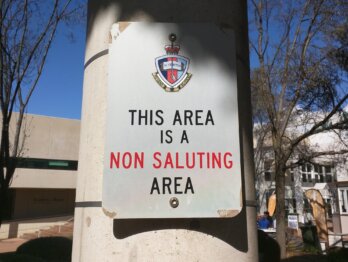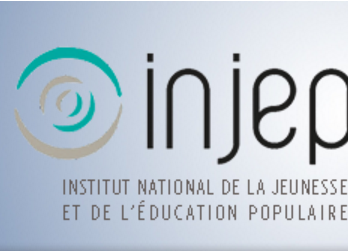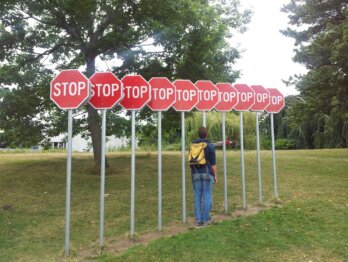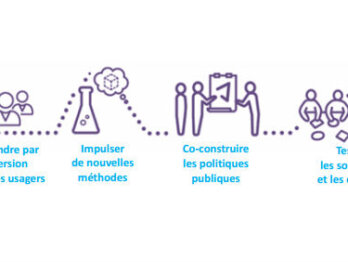Co-producing services with and for youth
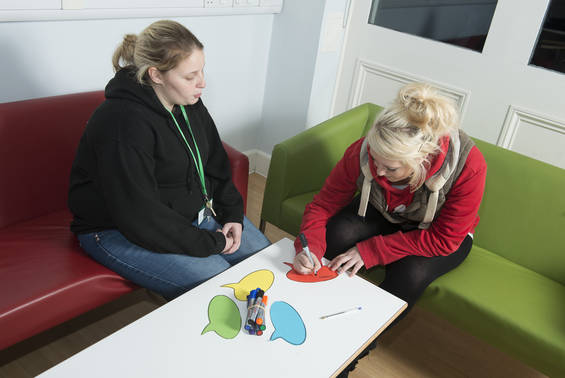
In April 2009, the Surrey County Council faced two challenges: to reduce the number of NEET youth and reduce our budget by 25%. Results from the U.K. Office for Standards in Education, Children’s Services and Skills (Ofstead) showed that a steady number of about 1000 NEET youth existed in Surrey over the past decade, and there was criticism that the existing programs weren’t achieving lasting social change.
In response, the council established Services for Young People, giving a new policy focus on the wellbeing and education of teenagers. This new program transformed their approach from delivering services to commissioning better outcomes for Surrey youth, and was still able to achieve this goal within the new budget constraints.
Utilising co-production methods, a Council member-led “change board” was established in September 2009, including young people and service providers. The board was trained in project governance, and a robust project management methodology was adopted. A commissioning plan was agreed upon, and the first task set out was to figure out the needs of young people not in any kind of education, employment, or training.
In June 2010, the council published “One in Ten: A Needs Assessment of Surrey Young People,” the most comprehensive assessment of the needs of people 13 to 19 years ever conducted in the county. Next, we considered what outcomes indicated need and were in line with the council’s policy ambitions for young people. We created and agreed upon an outcomes-based framework that focused on young people’s employability. This commissioning plan was agreed upon by the Children’s Trust, and approved by Surrey’s Cabinet in December 2010.
The process of engaging the market, designing services, appraising options, and developing the business case for change started as outcomes began to emerge in the summer of 2010. This was very much a creative process, where we first imagined that there was no service, and then we asked ourselves the question: “What is the best means of delivering services to NEET youth?”
The result was a unique new operating model unlike any other across the U.K. The model included a number of outcome-based contracts, new partnership arrangements, a new integrated service, and a central commissioning team. Having designed the new model, we then set about decommissioning the old service, which meant synchronising the termination of old contracts with the reorganisation of in-house services and the launch of the new model.
By January 2012, the new operating model for Services for Young People went live. The model was designed and built around need, outcomes, policy ambitions, political constraints, and a deep understanding of the system. After three years of operation, the new commissions delivered considerable success, and real and demonstrable outcomes for young people have been delivered in a context of fewer resources.
This change journey was very challenging, and we experienced considerable resistance from our stakeholders and occasionally made mistakes. Performance improvement is not always straightforward, and can require considerable tenacity and resilience. We used a conversation approach towards change, by “winning” the argument for the new service one conversation at a time with our partners.
Now, the service has widespread respect having delivered formidable results in a challenging context. As of March 2014, the number of NEET youth in Surrey is down to 429. In April 2014, we began the re-commissioning process and have now commissioned a five-year plan for Services for Young People until 2020. While the context remains challenging to continue achieving and providing good services for NEET youth in Surrey, we are exploring trading, mutualisation, social investment, and strategic partnerships in order to protect our outcomes and maintain our success.
You can read the case study on Transforming Services for Young People here.

